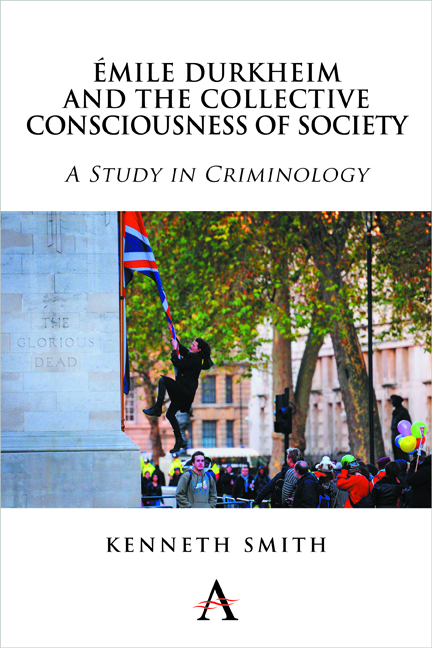Book contents
- Frontmatter
- Dedication
- Contents
- Epigraph
- Preface
- Introduction
- Part I The Concept of the Collective Consciousness of Society
- Preface to Part I
- Introduction to Part I
- 1 Durkheim on the Collective Consciousness in Moral Education
- 2 Durkheim's Other Writings on the Concept of the Collective Consciousness
- 3 Collective Consciousness, Common Consciousness, Collective Conscience or Conscience Collective?
- Conclusion to Part I
- Part II The Form of the Collective Consciousness
- Part III Durkheim on Crime and Punishment
- Part IV Social Fact or Social Phenomenon? Durkheim's Concept of the Collective Consciousness as a ‘Social Fact’
- Part V Some Problems with Durkheim's Concept of the Common and Collective Consciousness
- Conclusion
- Appendix: On Paying a Debt to Society
- Notes
- References
- Index
1 - Durkheim on the Collective Consciousness in Moral Education
from Part I - The Concept of the Collective Consciousness of Society
Published online by Cambridge University Press: 05 October 2014
- Frontmatter
- Dedication
- Contents
- Epigraph
- Preface
- Introduction
- Part I The Concept of the Collective Consciousness of Society
- Preface to Part I
- Introduction to Part I
- 1 Durkheim on the Collective Consciousness in Moral Education
- 2 Durkheim's Other Writings on the Concept of the Collective Consciousness
- 3 Collective Consciousness, Common Consciousness, Collective Conscience or Conscience Collective?
- Conclusion to Part I
- Part II The Form of the Collective Consciousness
- Part III Durkheim on Crime and Punishment
- Part IV Social Fact or Social Phenomenon? Durkheim's Concept of the Collective Consciousness as a ‘Social Fact’
- Part V Some Problems with Durkheim's Concept of the Common and Collective Consciousness
- Conclusion
- Appendix: On Paying a Debt to Society
- Notes
- References
- Index
Summary
Whenever an authority with power is established its first and foremost function is to ensure respect for beliefs, traditions and collective practices – namely, to defend the common consciousness.
(Durkheim 1989, 42; emphasis added)Durkheim does not explain his purpose in giving the series of lectures later collected together as Moral Education until near the end of the first half of the book. It was, he says, to discover the rational basis of those moral beliefs that up until the twentieth century had, in his view, scarcely been expressed at all other than in their religious form (2002, 103). Religion gives us an insight into the social origins of morality but, Durkheim argues, only in a distorted way. In order to understand morality properly it is necessary to strip it of its religious cloak. In Moral Education Durkheim not only claims to do this, but he also explains that this achievement was really no very great accomplishment, since all that he really needed to do was to ‘substitute for the conception of the supernatural being the empirical idea of a directly observable being – which is society – provided we do not view society as an arithmetic sum of individuals but as a new personality distinct from the individual personalities’ (104; emphasis added). This, then, is yet another expression of Durkheim's well-known ‘holist’ perspective. Durkheim had no time for the idea that society is merely the sum of its constituent parts (2002, 65), the individual people who merely happen to compose it at any given time.
- Type
- Chapter
- Information
- Publisher: Anthem PressPrint publication year: 2014

